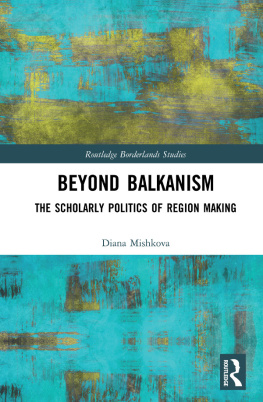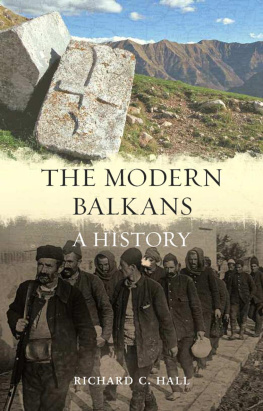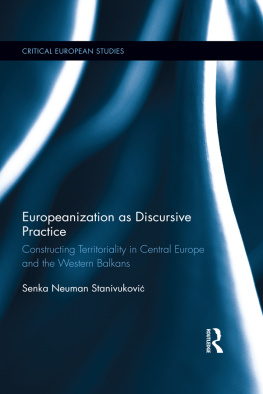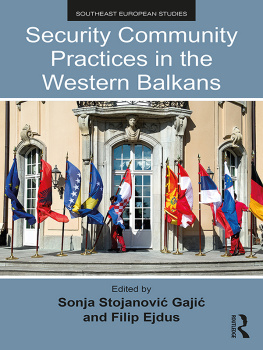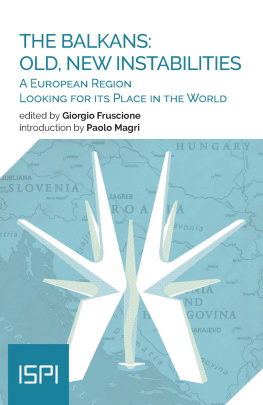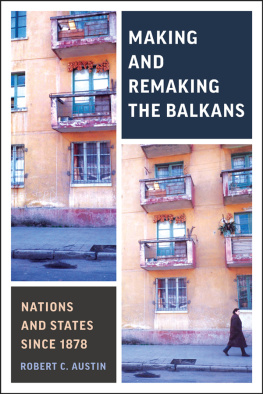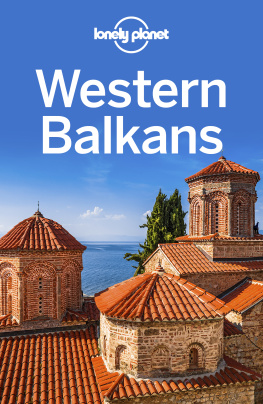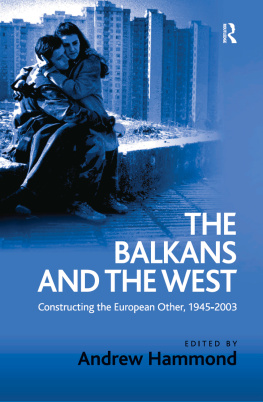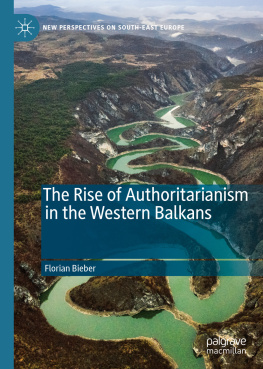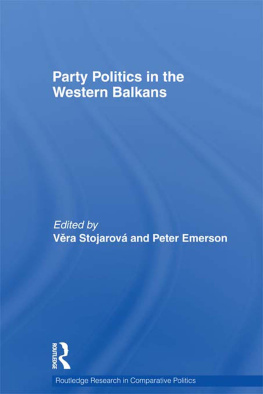
This long-awaited book is a ground breaking contribution to Balkan studies and to imagology in general. It constitutes a milestone in the debate on the construction of historical regions and opens a new horizon of interpretation by radically changing the perspective: it focusses on intraregional scholarly concepts of the Balkans, a region constructed by Serbian, Romanian, Bulgarian, Albanian and Greek researchers and research institutions. It elucidates Central and Eastern European scholarship on the region that has achieved, since the second half of the nineteenth century, important results in fields such as history, philology, linguistics, archaeology and anthropology, and that differs considerably from more politicised and prejudice-ridden discourses in the Anglo-American world... Far from being just a negative prejudice of Western travelogues and journalists, the Balkans emerge [here] as a highly complex cultural construction. Diana Mishkovas book will thus change our understanding of a crucial debate in cultural studies.
Oliver Jens Schmitt, Professor of Southeast European History, University of Vienna, and Head of the Department of Balkan Studies, Austrian Academy of Sciences, Austria
The Balkans are crucial for an understanding of Europes twentieth century: at the beginning and at the end, the Balkans loom large in European history and provide key caesuras . Anyone wanting to understand balkanism and its manifold meanings over time, and anyone wishing to obtain a deeper understanding of how this region of Europe has been ticking, will have to read Diana Mishkovas entirely thrilling and path-breaking new book.
Stefan Berger, Professor of Social History and Director of the Institute for Social Movements, Ruhr University Bochum, Germany
Heeding Todorovas call to attend to the Balkans as self-designation, Beyond Balkanism considers the Balkan idea from inside-out. Focusing on the Balkans as a project of regional identity formation, Mishkova breaks new ground in her recuperation of intra-regional dynamics and local regionalizations. Restoring agency to elites (both scholars and politicians) within the region, Beyond Balkanism makes a timely and much-needed contribution to the literatures on European symbolic geography.
Pamela Ballinger, Fred Cuny Chair in the History of Human Rights Department of History, University of Michigan, USA
Bringing together two decades of her research on the intellectual history of the Balkan idea, Diana Mishkovas book not only constitutes the most thorough recent synthesis but also situates the question brilliantly in a broader comparative context. Essential reading for all those interested in the history of regional concepts in modern Europe.
Alex Drace-Francis, Associate Professor, European Studies, University of Amsterdam, Netherlands
Diana Mishkova turns Maria Todorovas perspective from the outside on the Balkans around and looks from the Balkans (a) on the outside world and (b) on the Balkans [themselves]. In methodological terms, the book makes use of a vast array of both scholarly and non-scholarly publications by foreigners on the Balkans and by authors from the region on their own part of the world. That is a highly innovative approach and as such a substantial progress.
Stefan Troebst, Professor of East European Cultural History, Leipzig University, Germany
Beyond Balkanism
In recent years, western discourse about the Balkans, or balkanism, has risen in prominence. Characteristically, this strand of research sidelines the academic input in the production of western representations and Balkan self-understanding. Looking at the Balkans from the vantage point of balkanism has therefore contributed to its further marginalization as an object of research and the evisceration of its agency. This book reverses the perspective and looks at the Balkans primarily inside-out, from within the Balkans towards its self and the outside world, where the west is important but not the sole referent.
The book unravels attempts at regional identity-building and construction of regional discourses across various generations and academic subcultures, with the aim of reconstructing the conceptualizations of the Balkans that have emerged from academically embedded discursive practices and political usages. It thus seeks to reinstate the subjectivity of the Balkans and the responsibility of the Balkan intellectual elites for the concept and the images it conveys. The book then looks beyond the Balkans, inviting us to rethink the relationship between national and transnational (self-)representation and the communication between local and exogenous Western, Central and Eastern European concepts and definitions more generally. It thus contributes to the ongoing debates related to the creation of space and historical regions, which feed into rethinking the premises of the new area studies. Beyond Balkanism: The Scholarly Politics of Region Making will interest researchers and students of transnationalism, politics, historical geography, border and area studies.
Diana Mishkova is Professor of History and Director of the Centre for Advanced Study, Sofia, Bulgaria.
Routledge Borderlands Studies
Borderlands are spaces of transition between cultures, societies and states. Often, like in the case of the US and Mexico, they are understood as static territorial lines and buffer zones, subservient to the development of states and state territories. However, borderlands can also be fluid and ambiguous spaces, moulded by processes of economic and political integration or shifting geopolitical dividing lines. Moreover, borderlands cultures can be found far from borders, in cities, multicultural neighbourhoods and diasporic communities. They also exist as both future-oriented geographical imaginations and imaginaries with profound historical roots. Today, globalisation, integration and new transnational forms of communication change the complex interrelationships between state, society, space and borders. Consequently, borderlands become more and more places in their own right, reflecting broader supranational patterns of political, economic and social change.
With this series we encourage inter- and multidisciplinary investigation on borders and borderlands throughout the world. We engage with the political, social and historical richness of borderlands, reflecting their unique (geo)political and cultural significance in contexts of colonial rule, nation-building and integration. The series will explore, among other things, shifting social and political relations and place-related identities that emerge in borderlands, as well as cross-border interaction and the historical memories of every-day life at borders. With this series, we will both contribute to the rich tradition of North American and European borderlands studies and provide a forum for new growing interest in research on borderlands in Africa, Asia and Latin America.
For more information about this series, please visit: www.routledge.com/Routledge-Borderlands-Studies/book-series/BORDERLAND
Beyond Balkanism
The Scholarly Politics of Region Making
Diana Mishkova
Post-Cold War Borders
Reframing Political Space in Eastern Europe
Edited by Jussi Laine, Ilkka Liikanen and James W. Scott
Beyond Balkanism
The Scholarly Politics of Region Making
Diana Mishkova

First published 2019
by Routledge
2 Park Square, Milton Park, Abingdon, Oxon OX14 4RN
and by Routledge
711 Third Avenue, New York, NY 10017
Routledge is an imprint of the Taylor & Francis Group, an informa business
Next page
